“It is not an adventure until something goes wrong”
Life on the road can be chaotic as very few things are within your control. Over the years, we have learned to manage our fears and concerns, the same fears and concerns that we all share when heading deep into the unknown.
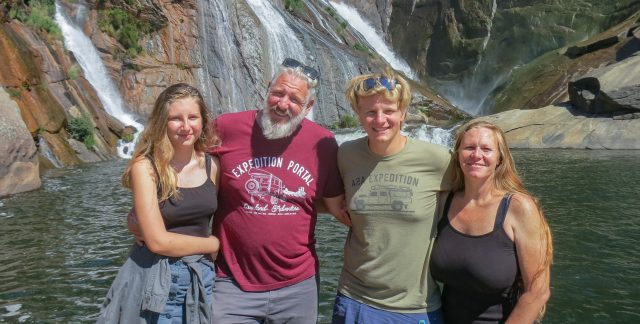
Before setting off on our maiden international voyage from Cape Town to Dar es Salaam, I was occasionally riddled with anxiety. This was back in 2009, and there was little positive encouragement to be found locally. Most of the advice we received centered around the theme that we would all die horrible, gruesome deaths. More than once, we discussed deserting the idea. Only a few quiet but confident and experienced voices broke through the noise to reassure us, “We circumnavigated Africa with our two young children; you will be just fine.” Traveling with children quadruples the risk and responsibility, but also, ultimately, as we were to learn, the reward. Anxiety is often described as a misuse of imagination, but how does one mentally prepare for and deal with the perceived and actual threats of traveling long distances across many countries, some volatile?
Upon return from the six-month African journey in 2010, we found ourselves transformed, relaxed, and reborn. The naysayers had been completely wrong and can all pound sand; we had a mostly peaceful, wonderful journey. That is not to say that we did not struggle with anxiety daily until we eventually returned home, kissing the Land Rover with an intensity reserved for passionate gratitude. And then the real trouble began.

Before beginning a journey across the Americas, by now besotted with the idea of vehicle-based travel, we had to sell our successful business and extract ourselves from the life which we had worked so hard to build. This process took a year, and every day was filled with excitement and dread—every night spent staring at the ceiling as sleep was elusive. I adapted and adopted a pattern of behavior, elements of which had brought success in the past, which helped me to deal with the stress of the transition and kept my eye on the ball. I am not a psychiatrist; I just know what works for me. I focused on the positive and alleviating any anxiety my family suffered in addition to my own. We went for long walks and often talked about what we were looking forward to and what we wanted to achieve. We discussed our fears and real-world solutions to real-world problems. I read books of intelligent adventure (mostly Paul Theroux) and resolved not to focus on the negative while simultaneously preparing for the worst. It worked! More than a decade later, we are still traveling, the children are fully grown, and we have lived a lifetime of adventures. I am, however, prematurely gray.
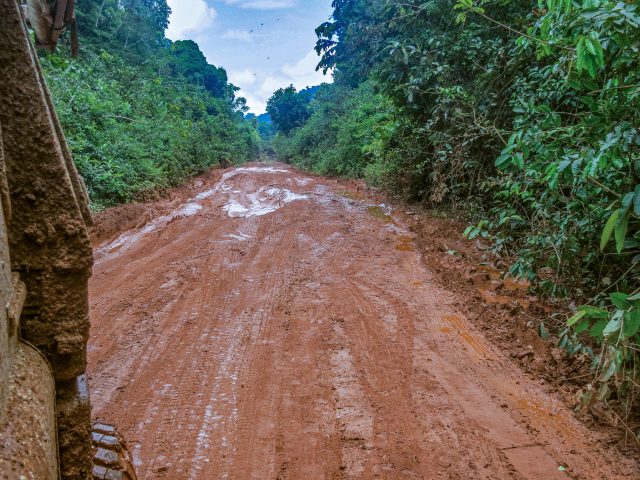
In the absence of a typical day-to-day life and routine, I have adopted habits to help us deal with life on the road as we humans need routine. It has not been easy, and no matter how hard I once tried, I cannot be that man without a care. I have to care, and because I care, I worry. Firstly, funding the lifestyle has been a daily concern, coupled with near complete technical self-reliance (we repair everything ourselves, and when I say everything, I mean everything). Secondly, we travel solo, and this has been no gentle road trip: we have circled South America, drove across the northern Amazon and the entirety of West Africa, and much more.
These habits bring order to chaos, are at the core of our success, and are essential to our day-to-day and long-term content. I am too old to be naive and too experienced to be entirely optimistic. I know what I am capable of and have learned my boundaries, the benefit of age, and experience. I remember victories, trying to learn from failure while dowsing the demons of fear and negativity with buckets of metaphysical holy water. I take responsibility for my actions and the morale and well-being of my family. Importantly, I manage expectations.
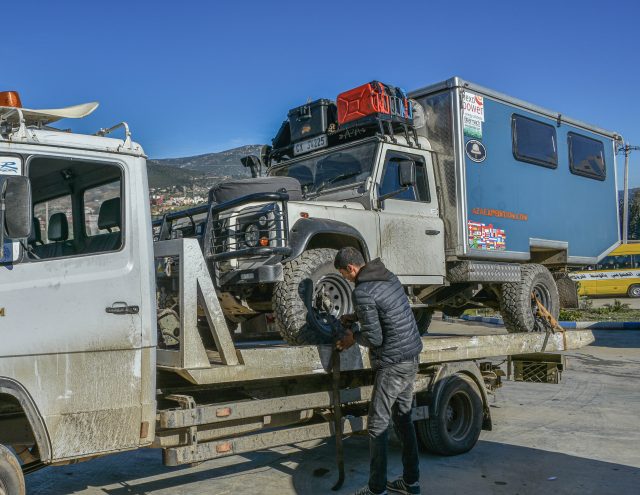
The habits and rituals range from the mildly superstitious (I always wear a wooden bracelet, Toca Madera!) to the entirely practical. Without a brick-and-mortar home, these rituals revolve around the vehicle over which I obsess, as our vehicle must always be in excellent running condition. One of my greatest fears and concerns is a mechanical breakdown, especially in a dangerous area, as happened in the hashish-growing remote mountains in Morocco and again in the Congo. But in both cases, we adapted and prevented a potential tragedy.
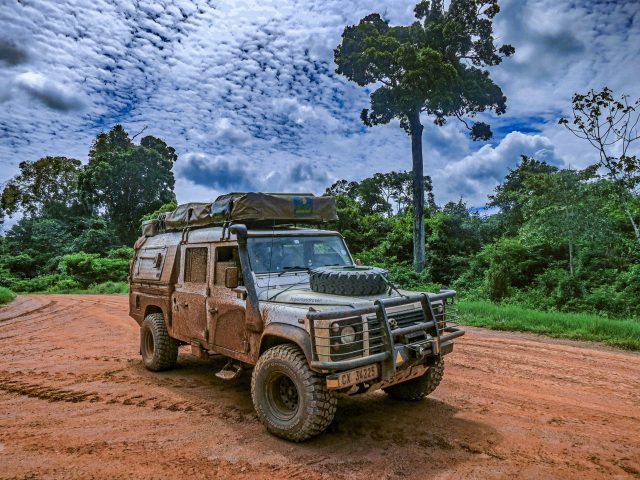
In addition to conscientious maintenance and repair of the vehicle, there are daily rituals such as the walk-around. Before every journey, whether a half-hour drive or a 12-hour mountain track, I inspect the vehicle from driver’s door to driver’s door. I check the oil and coolant levels, serpentine belts, and batteries while looking for leaks and obvious failures. I then move on to the vehicle’s visible exterior, including wheels and tires, clips and latches, doors and windows, accessories, lights, fuel, and water caps. I start the vehicle and listen for audible clues of failure, and only once the inspection is completed, and I am satisfied that all is as it should be will we leave our overnight camp, wherever that may be. This is my footballer’s pre-game ritual, and I cannot travel without it. The ritual relieves anxiety in many ways as I have a habit that satisfies my need for order and ensures that the vehicle is fit to carry my family safely. There should not be any surprises while sometimes driving treacherous roads. This ritual is repeated at every gas station, sometimes intensely and at other times casually, depending on whether we are driving across rural Maine or southern Nigeria. We cannot leave a gas station before I have checked the fuel cap, vigorously tapped the body of the vehicle three times (it has to hurt a bit) with a knuckle, and said the word, “locked.”
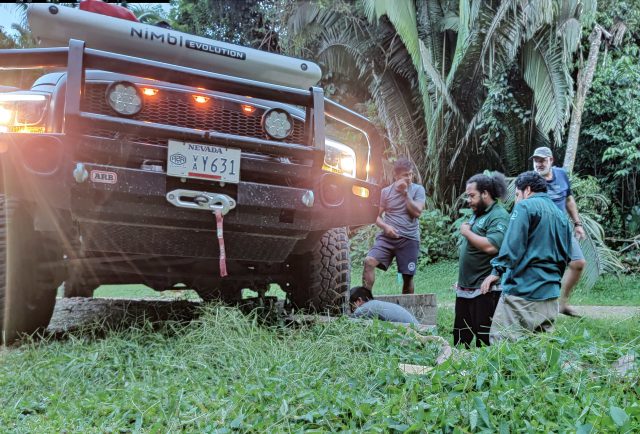
At night, when we arrive at an overnight camp (sometimes an actual camp and sometimes a gas station or a quiet side street), we will behave appropriate to the location and then do a walk-around lock-up before going to bed and after the interior of the vehicle has been cleaned and prepared for the next day. A clean vehicle and camper are immensely satisfying, aligning your mind. If there were a zombie apocalypse and no other human in sight, I would still cut the lawn and wash the windows. The make your bed theory is often attributed to Admiral William H. McRaven; in practice, small successes multiply to become a big success.
According to a recent article by Dimitris Xygalatas in Nautilus, “Rituals are highly structured. They require rigidity (they must always be performed the “correct” way), repetition (the same actions performed again and again) and redundancy (they can go on for a long time). In other words, they are predictable. This predictability imposes order on the chaos of everyday life, which provides us with a sense of control over uncontrollable situations.”
Fear is a natural part of the adventure, and it is by dealing with fear and anxiety that we are able to do extraordinary things.
Our No Compromise Clause: We carefully screen all contributors to ensure they are independent and impartial. We never have and never will accept advertorial, and we do not allow advertising to influence our product or destination reviews.


